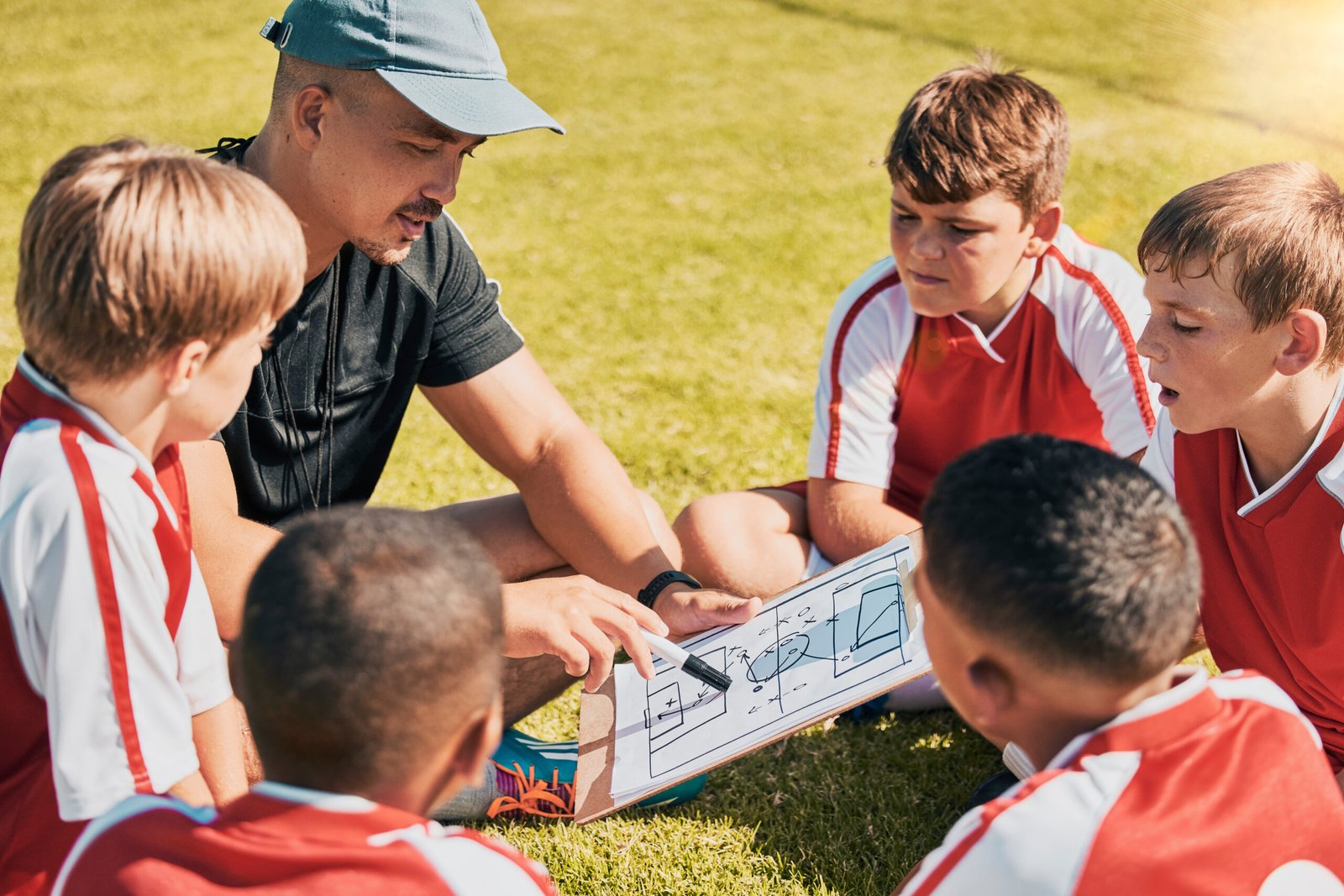Introduction
A child’s life may be affected by early sports. It instills life skills, positive habits, and, most importantly, a lifetime of exercise. However, parents, coaches, and players must evaluate youth sports training beyond wins and losses. Prioritize holistic athlete development and pleasure.
This blog post will cover youth sports training, including practical methods, parental advice, and coach tips for team success. Our comprehensive resource serves parents, coaches, and youth.
The Importance of Youth Sports Training
Youth sports training helps build athletes and well-rounded people. Beyond physical fitness, it affects mental and emotional wellness. Sports teach youngsters discipline, teamwork, and persistence.
Early sports participation improves brain function, helping kids succeed academically. Physical exercise releases endorphins, which boost mood and decrease stress. Sports are an excellent way for young athletes to release energy and stay mentally healthy.
Besides physical advantages, sports improve social skills. Team sports teach kids communication, teamwork, and empathy. Young athletes gain confidence and are ready for on- and off-field difficulties.
Setting Realistic Goals for Young Athletes
They are setting realistic goals before commencing youth sports training. Young athletes need parents and coaches to define success. These goals should be achievable yet challenging.
Parents and coaches must recognize each child’s unique abilities and interests. Adjust goals to the child’s development. Encourage young athletes to set short- and long-term goals to track progress and celebrate victories.
Well-structured goal-setting teaches young athletes responsibility and accountability. It teaches perseverance, time management, and devotion. After achieving their goals, they feel confident and enjoy sports.
Balancing Training and Academics
Youths struggle to balance academics and sports. Kids’ time management depends on parents and coaches. Schools must emphasize homework while training schedules don’t overload kids.
Parents, coaches, and instructors may encourage young athletes by communicating. Help youngsters schedule schooling, training, rest, and play. It helps organization and reduces weariness.
No one should choose sports above school. Parents and coaches must teach young athletes that well-rounded development includes intellectual and physical growth. Kids can have it all by balancing.
Nutrition and Hydration for Optimal Performance
Youth sports training must include proper nutrition and hydration. Young athletes need a balanced diet for energy, development, and healing. Parents should provide nutrient-dense meals with carbs, proteins, healthy fats, vitamins, and minerals.
Dehydration affects performance and focus; thus, hydration is crucial. Encourage young athletes to drink water before, during, and after workouts and activities. Water is better for regular hydration, whereas sports drinks are good for lengthy exercises.
Educating kids about nutrition helps them make better choices. Please encourage them to watch their diets and listen to their bodies. Well-fueled young athletes perform better on the field and recover faster.
Injury Prevention and Management
Injury prevention is essential in youth sports training. Parents and coaches should emphasize safety by ensuring players utilize suitable equipment and procedures. Warm-up and stretching activities prepare the body for exercise and decrease injury risk.
Teaching young athletes to listen to their bodies is crucial. They should speak out if they hurt since pushing through ailments might worsen them. Open communication with coaches and doctors may help resolve issues quickly.
Injury treatment and recovery should be prioritized. Encourage rest, rehabilitation, and medical guidance for a safe sports comeback. Sports communities gain trust and confidence from supportive environments that promote young players’ well-being.
Building Resilience and Mental Toughness
Young athletes learn perseverance and mental toughness via sports. They learn to handle stress, overcome obstacles, and recover. These traits are essential in all aspects of life, sports included.
Coaches and parents may assist young athletes in improving resilience by fostering a growth mentality. We should learn from mistakes and value effort above results. Positive reinforcement and constructive comments increase self-esteem and confidence.
Young athletes need a friendly atmosphere to express themselves and seek assistance. Open talks about emotions and mental health may help kids cope and build resilience.
Encouraging Multi-Sport Participation
Specialization may be appealing, but encouraging young athletes to play many sports might be advantageous. Multi-sport involvement builds skills, decreases overuse injuries, and promotes physical exercise.
Different sports help kids develop motor skills, coordination, and agility. It also broadens their sports experience by introducing new team dynamics and methods. Multi-sport players may improve their performance by having a broader viewpoint and versatility.
Considering sports specialization, parents and coaches should emphasize the child’s interests and satisfaction. By trying various sports, young athletes may find their hobbies and make career choices.
Fostering a Positive Team Environment
Young athletes need a good team atmosphere to develop. Coaches are vital to fostering team unity, respect, and support. Team members should communicate, collaborate, and respect one another.
Team-building exercises on and off the field may enhance relationships and dynamics. Coaches should stress sportsmanship and celebrate successes and individual improvement.
Parents may foster this positive atmosphere by encouraging sportsmanship and respecting coaches, referees, and other athletes. Working with parents and coaches gives young athletes a feeling of belonging and pride.
The Role of Parents in Youth Sports Training
Parental support is crucial for sports training. Their support, encouragement, and engagement may significantly impact a child’s athletic development. Parents must balance supporting and letting their kids own their sports.
Encourage your youngster to talk about sports and listen to their emotions. Celebrate their triumphs, big and small, and help them through tough times. Avoid pressure and false expectations to avoid burnout and a bad sports experience.
Parents should model active behaviors, stress rest, and recovery to encourage a healthy lifestyle. Parents may inspire their kids to appreciate sports and exercise by providing a loving atmosphere.
Training Young Athletes for Long-Term Success
Youth sports training should create long-term success. This comprehensive approach emphasizes physical, mental, and emotional growth. Encourage youth athletes to develop objectives and manage their training.
Coaches should value talent, technique, and strategy above victory. A balanced training regimen that includes strength and fitness, mental skills, and rehabilitation prepares young athletes for any level of competition.
Parents, coaches, and young athletes must collaborate to foster support. By concentrating on athlete development, we can help young athletes fulfill their potential and love sports for life.
Conclusion
Youth sports training has many chances for growth, learning, and success. We can provide young athletes with a pleasant sporting experience that prepares them for success in sports and beyond by focusing on their holistic development and creating a supportive atmosphere.
Parents, coaches, and young players are crucial. We can inspire young athletes to excel and enjoy sports for life. Many tools and training programs may help you explore this exciting adventure. Let’s engage in the journey to help young athletes reach their full potential.
Let’s prioritize the well-being and development of young athletes by emphasizing injury prevention, building resilience and mental toughness, encouraging multi-sport participation, fostering a positive team environment, and involving parents in the sports training process.





